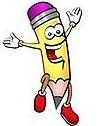By the time they are 4 years old, children should be able to:
Number Sense
- count verbally to 10 or beyond
- knowing the last number said when counting at least 5 objects (cardinality)
- recognize and name the number of items in a set of 3 or 4
- make a small collection with the same number as another collection
Comparing and Ordering
- use gestures or words to make comparisons
- compare groups of 1 – 5 objects by matching or counting when objects in each group are about the same size
- count two equal collections (when asked, will say the collection of larger objects has more)
Basic Operations
- know that a whole is bigger than its parts
- find the total sum of small groups of items
- combine and separate up to five objects; describe the parts
Algebraic Thinking (Patterns and Relations)
- understand that when adding two numbers, it does not matter which number “comes first”
Measurement
- compare size by sight, feel and comparing to hands, feet, etc.
- know usual sequence of basic daily events
- list a few ordinal numbers (1st, 2nd, 3rd, etc.)
- compare and order a small set of objects (based on size, length, weight, area or volume)
- fill simple pattern block puzzles using trial and error
Data Analysis
- sort and/or describe objects by a non-geometric attribute (size, colour) or by shape
Geometry (Shapes)
- recognize more shapes in real world situations
- identify less typical triangle shapes and some rectangles
- recognize some shapes with different sizes and orientations
Spatial Sense
- follow simple directions related to proximity (behind, under, beside, next to, between)
